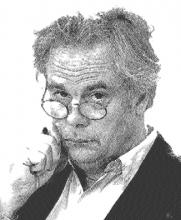You are here
Sending Brazil’s Lula to prison is nonsense
Apr 12,2018 - Last updated at Apr 12,2018
President Barack Obama said that the then president of Brazil, Luiz Inacio “Lula” da Silva, was “the most popular president on earth”. Now, while fighting for a new term in office, he has been brought low, imprisoned for 12 years for corruption. He is still the most popular politician in Brazil and until he went to prison at the beginning of the week was the favourite to win October’s election. After his previous terms in office he left behind a country, one that had been the most unequal society on earth, see a quarter of its population lifted out of poverty, a fast-growing economy and a sharp increase in its lower-middle class, as millions got jobs and/or pay rises.Observers in Brazil appear divided about the nature of the senior judiciary.
Some say the prosecutors are crusading judges determined to root out the corruption that is a gangrene on the body politic. Others say the judiciary is highly politicised, leading rightwards and engaged in something like a vendetta. It moved quite fast with the Lula case but slowly with the case of the present president, Michel Temer, who is a fierce opponent of Lula.
As outsiders all we can do is shake our heads when we see such a long sentence being given to a man who truly liberated Brazil from the cruelties of its centuries of de facto feudalism. The principal accusation is that he received a bribe- a beachfront apartment. Yet, he never set foot inside it. It is not the place I would want to live in. It is located in an unappealing row of buildings on an unappealing beach in an unappealing town. If Lula is corrupt he could have done better than that. How about a roof-top penthouse overlooking Copacabana beach? In fact he lives in the same scruffy neighbourhood in Sao Paulo that he lived in when he was a trade union leader in a car-manufacturing factory.
Forty years ago I spent four hours in face-to-face conversation with Lula. It was published in some of the world’s top newspapers. Uneducated in a formal sense, his facility for answering a difficult question well was awe-inspiring. “I think it’s better just to go to forward one millimeter knowing that we won’t have to go two millimeters backwards later on.”
Brazil in its way had everything, only the potential of its poorest quarter was not being used until Lula came along. It is a mighty nation of vast dimensions. It is bounded by steamy tropical rain forests to the north and cool, temperate, munificent prairies to the south. No other country in the world offers such an abundance of raw materials and raw opportunities.
Brazil, moreover, has always lived its fantasy. Copacabana beach, sensuality, the carnival and the samba are not just the tourist office’s concoction. They are as Brazil really is — the archetypal relaxed, gregarious and tolerant society. It is a country that has not gone to war since 1870. It abolished executions in 1885. It does not do violence in its politics, however fierce the provocations of opponents. Its politics does not have extremes. There is no significant Communist Party or fascist tendency. It is a country that, although its black population is poor and under-educated, has never had Jim Crow laws.
In the first 60 years of the last century it looked as if Brazil was preparing for a fabulous lift-off. With Taiwan it shared the honours of being the fastest growing economy in the world.
In the 1960s it started to come apart. The military that had taken control began well but lost their way. Bad economic management, the awful inequalities of the system and the rabid greed of the well-to-do undermined the reach for growth.
Many modern academic studies have shown that more equality in a society produces faster economic growth and development. But this truth was ignored until the military government fell and Fernando Henrique Cardosa won a democratic election, and then put Brazil economically back on its feet. He also initiated a range of social policies.
His successor, Lula, built on this. He accelerated both economic growth and social programmes. The poor were at last enfranchised and made the recipients of well thought out programs that lifted them out of their centuries of poverty. Around a quarter of the middle-classes who had done so well out of the old system twice supported him with their votes. He had sensible views on how to run a capitalist system and at the same time eased their Catholic consciences by making society more poor-orientated. Fewer of the better-off younger people wanted to live in a society that tolerated thousands of street children or masses of unemployed and underemployed.
Does he look like a man who would sully his reputation, who wanted to be president again, in return for a second-rate apartment?










